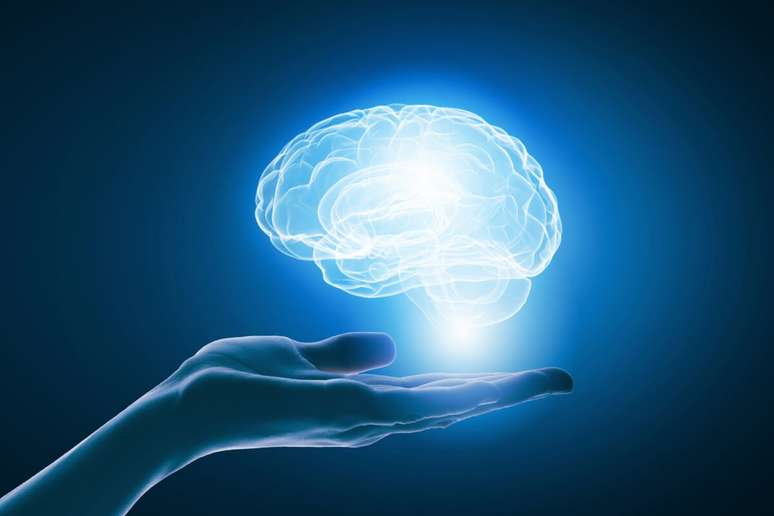Recognizing the signs in advance is essential to seek a medical evaluation and guarantee correct diagnosis and treatment
Commanders, emotions, movements and all the functions of the body, the brain is an essential organ for life. It acts as the body control center, processes sensory information, regulating the heartbeat, breathing, sleep and even the functioning of other organs. In addition, he is responsible for memory, reasoning, language and the ability to make decisions.
According to Hugo Sterman Neto, neurosurgeon at Vila Nova Star Hospital and São Luiz Italian, from Rede d’Or, it is common that some cognitive changes occur over the years. However, when these changes begin to interfere with activity From everyday life or to cause concern among family members, it is time to seek help for experts.
Symptoms indicating something wrong in the brain
It is important to be aware of the signs that can indicate the onset of neurological diseases. I am:
- Problem to store recent information: Difficulty memorizing dates and events, depending on notes, reminders or help from others;
- Loss of services in usual tasks: Especially with numbers, such as the payment of bills or the organization of finance, to use more time than usual to finish them;
- Disorientation: Be disoriented and in space, how to forget where it is or how it has reached a certain place;
- Visual changes: Difficulty with the perception of colors, shapes and depths, which can disturb, for example, while driving;
- Problems with words: difficulty finding words or appoint objects, with impoverishment of the vocabulary;
- Forgetting: Forget where it has often left objects and creates justifications that do not correspond to reality, how to imagine they have been stolen;
- Difficulty with money: Defects on money management, like paying wrong values;
- Personal inattention: Leave aside the care with personal hygiene or food;
- Insulation: Socially isolate or move away from previously pleasant activities, including work;
- Mood swings and personality: irritability, apathy or excessive distrust.
According to Hugo Sterman Neto, isolated oblivion, how to forget a word or a commitment, can be normal and is part of natural aging. What attention deserves is the frequency and impact of these intervals on the routine. “When the symptoms begin to interrupt the daily life or the autonomy of the person, it is essential to seek a neurological evaluation,” he explains.
Diseases associated with symptoms
Among the most associated diseases of the symptoms listed are dementia, in particular Alzheimer’s, vascular dementia and Parkinson’s disease. These conditions often manifest themselves thinly at the beginning and the first signs can go unnoticed or be confused with common aging.
“It is believed that you change in brain Years occur before the symptoms occur, but we still do not have treatment strategies before the clinical emergence of the disease. With the arrival of new study drugs, some concepts should be rethought soon, “says the doctor.

The lifestyle influences brain health
In addition to the genetic predisposition, lifestyle factors play an important role in brain health. Sleeping badly, living under constant stress, maintaining a unbalanced diet, physical inactivity and social isolation increases the risk of cognitive impairment over the years.
“On the other hand, invest in a healthy routine with exercise, good foodSocial interaction and mental stimuli, such as reading and games, help to strengthen the brain and create a sort of cognitive reserve that protects the organ from the wear and tear of time, “says Hugo Sterman Neto.
When to look for a neurologist
Recognizing the symptoms in advance is essential to look for a medical evaluation and guarantee adequate diagnosis and treatment, helping to preserve brain health and the quality of life. Therefore, it is worth looking for a neurologist:
- If the warning symptoms are repeated and interfering with the routine;
- If family members note behavioral changes or frequent memory falls;
- In the case of family history of neurodegenerative diseases.
Early diagnosis may not mean healing, but makes the difference in monitoring and control symptoms. First a disease is identified, the strategies to preserve the quality of life and independence of the person are more effective.
“Taking care of the brain soon is the best investment we can do to get old. Just while we worry about the heart and muscles, we must remember that the mind also needs constant attention and stimulation,” says Hugo Stern Neto.
By Samara Menu
Source: Terra
Ben Stock is a lifestyle journalist and author at Gossipify. He writes about topics such as health, wellness, travel, food and home decor. He provides practical advice and inspiration to improve well-being, keeps readers up to date with latest lifestyle news and trends, known for his engaging writing style, in-depth analysis and unique perspectives.









